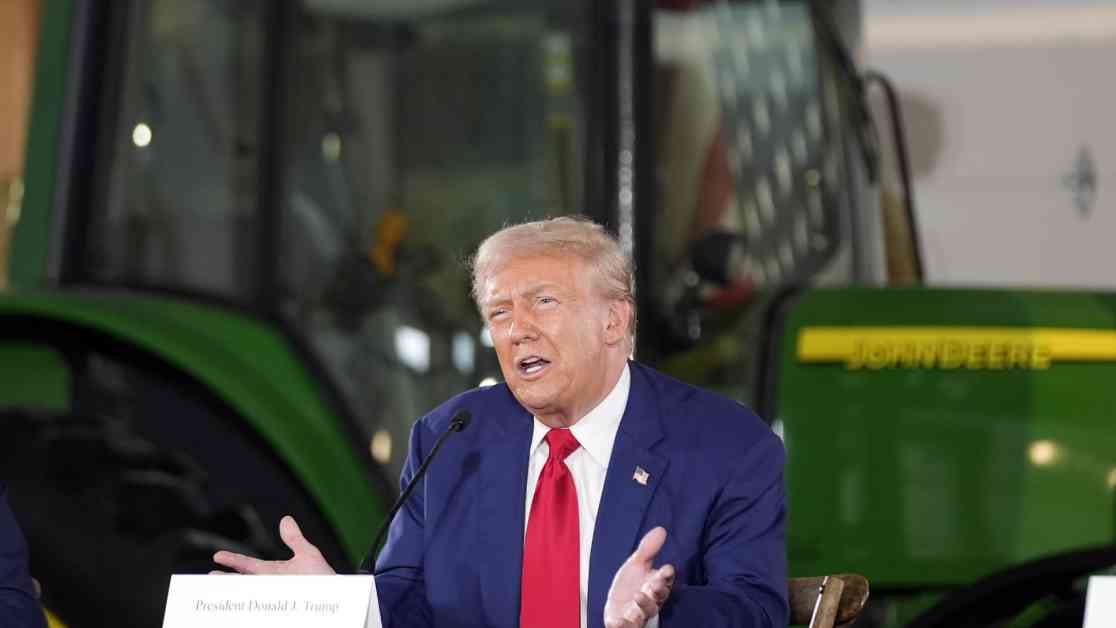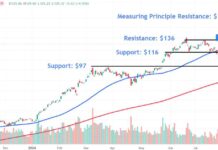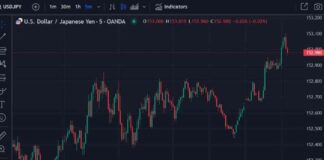Trump Threatens 200% Tariff on John Deere for Shifting Production to Mexico
Former President Donald Trump issued a warning to John Deere on Monday, threatening the agricultural manufacturer with a 200% tariff if they proceed with plans to move production to factories in Mexico. Speaking at a campaign event in Smithton, Pennsylvania, Trump made it clear that he would not tolerate such actions that he believes would harm American workers and farmers.
Trump’s Stance on Tariffs
Throughout his campaign, Trump has been vocal about his support for tariffs as a means to protect American jobs and industries. He has consistently argued that companies moving production overseas are detrimental to the economy and has pledged to take action against such practices. The threat against John Deere is just one example of Trump’s tough stance on trade and manufacturing.
John Deere’s Response
In response to Trump’s warning, a spokesperson for John Deere pointed to the company’s commitment to U.S. manufacturing, highlighting investments in American factories and workers. The company acknowledged the need to sometimes relocate less complex operations to other locations in order to focus on more value-added activities. However, they emphasized their dedication to supporting American manufacturing despite the challenges they face.
Despite the backlash from Trump and the potential tariff implications, John Deere remains steadfast in its commitment to the American workforce. The company’s decision to move some production to Mexico is driven by strategic considerations aimed at enhancing overall efficiency and competitiveness in the global market.
Impact on Farmers and Workers
Trump’s warning to John Deere comes at a time when American farmers and workers are already facing economic challenges. The shift in production to Mexico has resulted in layoffs at facilities in Iowa, further exacerbating the situation for those directly impacted. The potential imposition of a 200% tariff could have far-reaching consequences for both the company and its employees.
As the debate over trade policies intensifies, it is clear that the decisions made by companies like John Deere have significant implications for the broader economy. The issue of outsourcing and offshoring continues to be a contentious topic, with stakeholders on both sides advocating for their respective positions.
In conclusion, Trump’s threat of a 200% tariff on John Deere serves as a reminder of the complexities surrounding trade and manufacturing in the modern economy. While the intentions behind such actions may be well-meaning, the potential consequences must be carefully considered to ensure a balanced approach that benefits all parties involved.

















